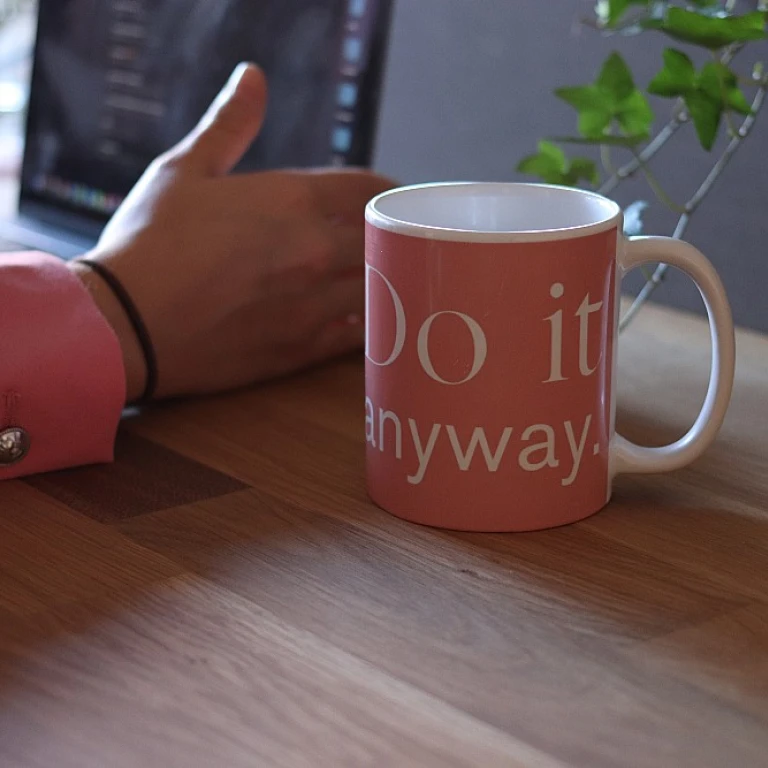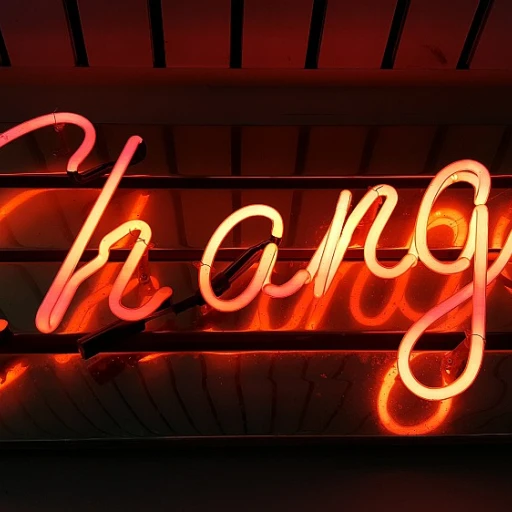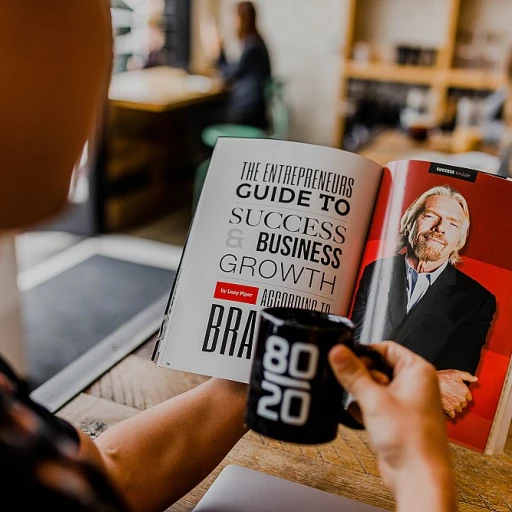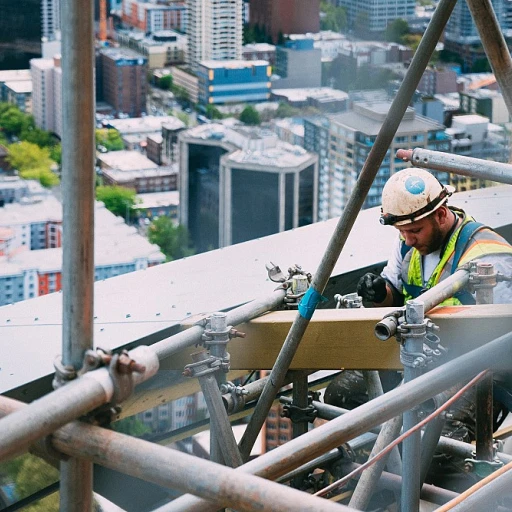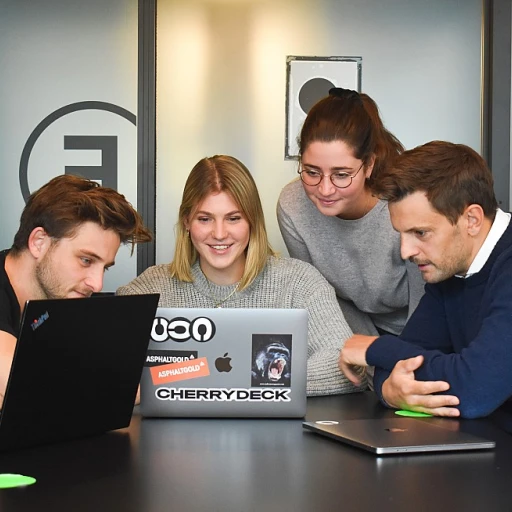
Understanding the Importance of a Scheduled Interview
The Significance of a Scheduled Interview
In the competitive landscape of job hunting, the moment a candidate receives an email confirming their interview appointment, it marks a pivotal point in the hiring process. A scheduled interview is not just a date on the calendar; it signifies a mutual interest between the candidate and the hiring organization. This stage in the interview process is crucial as it sets the tone for the candidate experience and can influence the candidate's perception of the company.
For candidates, understanding the importance of this scheduled interview can help in preparing effectively and managing expectations. It is essential to recognize that the interview schedule is a reflection of the company's organizational skills and respect for the candidate's time. Companies often use scheduling software to streamline this process, ensuring that interviews are set at convenient times for both parties, taking into account different time zones and availability.
From the perspective of hiring managers and recruiters, scheduling interviews efficiently is a testament to their customer service capabilities. It demonstrates their commitment to providing a seamless candidate experience. The use of automated interview scheduling tools can enhance this process, reducing the time to hire and improving overall efficiency.
Moreover, the scheduled interview is an opportunity for candidates to showcase their skills and align their experiences with the company's needs. It is a chance to engage in a dialogue that could potentially lead to a successful hiring decision. As candidates prepare for this important step, they should focus on key preparation steps and strategies to manage interview anxiety, which will be discussed further in the subsequent sections.
For more insights on enhancing candidate experience through effective HR communication, you can explore this resource.
Preparing for the Interview: Key Steps to Success
Essential Preparation Tips for a Successful Interview
When your interview is finally scheduled, the time leading up to it can be a mix of anticipation and preparation. Understanding that interviews are a critical step in the hiring process, your preparation should be strategic and thorough. Here's how candidates can set themselves up for success.- Research Thoroughly
- Dive into the company's background, mission, and recent news. It will not only help you tailor your answers but also impress upon the recruiters your genuine interest in the role.
- Familiarize yourself with the position and its requirements. Review the job description multiple times to align your responses with what the hiring managers are seeking.
- Organize Your Schedule
- Ensure your calendar is clear of conflicts during the interview time. Avoid any scheduling mishaps by setting reminders across different time zones if necessary.
- If you're using automated interview scheduling software, double-check that the time and date reflect accurately on your personal calendar.
- Practice Your Responses
- Prepare for common interview questions and practice your responses out loud. This exercise is fundamental in building confidence.
- If handling negative feedback during interviews poses a challenge, consider revisiting it as part of your preparation routine. Effective handling of constructive criticism can significantly enhance your candidate experience.
- Plan Your Questions
- Prepare a list of questions to ask the interviewers. This step demonstrates proactive engagement and can reveal important insights about the company’s culture and the role itself.
- Understanding what to inquire, especially in a 1-on-1 meeting scenario, can be a valuable asset (Crafting Effective 1-on-1 Meetings with Your Manager offers a comprehensive guide on this aspect).
- Get Your Documents Ready
- Assemble necessary documents such as your resume, cover letter, and any additional certifications. Having these at hand during the interview prevents any last-minute scrambles.
- Keep a notepad or a digital device handy to take notes during the interview. This practice helps in formulating thoughtful follow-up questions and making post-interview decisions.
Managing Interview Anxiety and Stress
Managing Nerves and Staying Centered
The interview process can indeed stir up a whirlwind of emotions, often making even the most seasoned candidates feel a bit uneasy. It's normal to experience a range of feelings during the interview appointment, especially when so much rides on the outcome.Accepting and Understanding Anxiety
The first step to managing interview anxiety is acknowledging it. Understanding that it's a common response to the hiring process can help candidates feel less isolated. Anxiety can arise from various elements, whether it's the anticipation of the interview scheduled or the pressure to make a strong impression on hiring managers.Grounding Techniques for Stress Reduction
Practical techniques can mitigate stress and align your focus. Simple breathing exercises can be beneficial in grounding oneself. Deep breathing, which involves slowly inhaling and exhaling, helps to calm the mind. This purposeful breathing can be practiced prior to an interview schedule or at any point of heightened stress. Another effective method is positive visualization. Imagine yourself succeeding and being poised during the interview. This state of mind can transform nerves into a source of motivation, allowing you to approach the interview with a positive outlook.Leveraging Interview Scheduling Tools
Embracing technology as an ally can ease some of the burdens of the scheduling process. Scheduling software aids many recruiters in organizing time zones, sending automated interview notifications, and managing the interview calendar. For candidates, this can translate into clear communication and an optimized interview experience. Having clarity on the date and time of your scheduled interview can minimize ambiguity, which in turn reduces stress. Understanding the schedule interview process ensures preparedness, taking the guesswork out of when and where the interview will occur.Constructive Practices for Growth
Remember, interviews are as much a learning opportunity as a hiring step. Analyzing feedback, both positive and constructive, can offer insights into areas of strength and opportunities for improvement. Consider accessing effective examples of interview feedback here for further learning. By embracing these approaches, candidates can align their mindset and approach the interview process with confidence, transforming anxiety into a stepping stone for success.What to Expect on the Day of the Interview
The Journey Towards Your Interview Appointment
When the day of your interview arrives, anticipation mingles with nerves. It's crucial to approach this part of the hiring journey with a clear understanding of what to anticipate. Here's a guide to help you navigate the events of the day, ensuring you remain composed and focused. Firstly, double-check the interview schedule. Confirm the time in your calendar, considering any potential time zone differences if your interview is online or with an international company. Scheduling software or automated emails might guide you, but keeping an eye on the specifics will prevent mishaps. Upon arrival, whether virtual or in person, be prepared for a warm welcome from the hiring managers or recruiters. Their primary goal is to gauge your suitability for the role, but they also want to ensure the candidate experience aligns with company values. During the interview, engage actively. Listen carefully to questions and answer thoroughly but succinctly. This is where your preparation pays off—if you’ve anticipated potential questions and are familiar with the company, your confidence will shine through. Remember, interviews are as much about you assessing the company as they are about the company evaluating you. Take note of the company's culture as observed in their communication and interaction. Be prepared for minor delays; sometimes, the scheduling process can be unpredictable. If you encounter delays, remain patient and approach the situation with gratitude for the opportunity to showcase your skills. Ultimately, the day of an interview is not just about your performance. It’s a step in a larger process designed to find the ideal match between candidate and employer. A confident approach and understanding of the day's logistics can enhance your overall experience, setting a positive tone for your future interactions with the company.Post-Interview Etiquette and Follow-Up
Post-Interview Considerations and Etiquette
Once the interview concludes, candidates may feel a mix of emotions ranging from relief to anticipation. While a significant portion of the interview process may seem outside their control, candidates can still influence their standing in the hiring process through appropriate post-interview actions. Here's a guide on maintaining professionalism and nurturing a positive candidate experience after the interview.- Timely Follow-Up: Sending a thank-you email to the hiring managers or recruiters is a gracious gesture that can enhance your candidate experience. It underscores your appreciation for the opportunity and your continued interest in the position. Ideally, this should be sent within 24 hours of the interview to stay fresh in their mind.
- Reiterate Key Points: In your follow-up email, briefly reinforce a couple of highlights from your interview discussion to remind them why you are an excellent fit for the role. Reference specific aspects of your experience or skills that align with their needs.
- Respect the Timeline: During the interview, candidates might be provided with information about the next steps. If you don't receive feedback or an update within the stated time frame, it's perfectly acceptable to reach out gently inquiring about the status of the interview process.
- Maintain Professionalism: Whether communication occurs through email or phone, always keep interactions professional and courteous. This effort can solidify your respectful image, ensuring you're remembered positively.
- Evaluate Your Performance: Reflect on how you managed both your preparation and the interview itself. Identifying areas for improvement not only prepares you for future interviews but also fosters personal growth.
Learning from the Interview Experience
Reflecting on Your Interview Experience
The conclusion of an interview can be a pivotal moment in any candidate's journey. Reflecting on your experience can not only enhance your future performances but also enrich your understanding of the hiring process. By taking the time to contemplate the various stages covered in your interview and the feedback received, you'll better arm yourself for future opportunities. Start by considering the whole process: from the initial interview scheduling, where you navigated time zones and adjusted your calendar, to the preparation stages where you might have practiced answering common interview questions or delved into the company culture. Each part of the process contributes to your growth as a candidate.- Evaluate Your Performance: Identify what you felt went well in the interview and where you might have stumbled. Were there questions that caught you off guard, or sections where you felt particularly strong? This self-assessment can inform how you prepare for your next interview.
- Feedback Consideration: If possible, seek feedback from the hiring managers or recruiters. Constructive criticism can be invaluable, providing insights that you might not have noticed during the interview.
- Log Learnings: Maintain a journal or digital notes of your interview experiences. Write down the questions asked, your responses, and reflections on the company’s customer service, the interview scheduling process, and any state of anxiety you managed.
- Review Interview Scheduling Software: If you've used any automated interview scheduling tools during your process, reflect on their effectiveness. Consider how they influenced your ability to manage time and expectations in scheduling interviews.
- Network and Follow Up: Reconnecting via email or LinkedIn messages with the interviewers can show professionalism, express gratitude, and possibly keep the door open for future opportunities.

